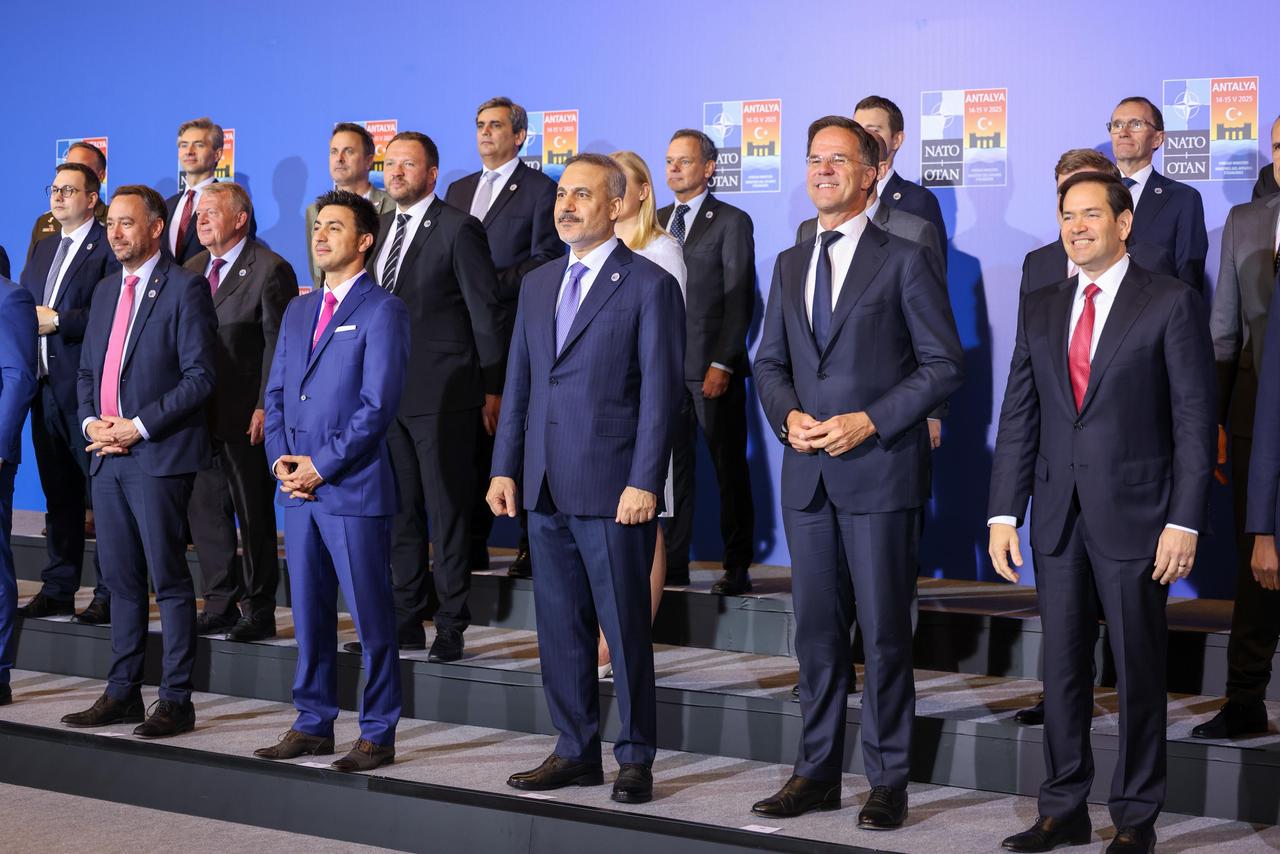
NATO foreign ministers gathered in Antalya on Thursday urged Russia to agree to an "immediate" and "unconditional" cease-fire, as Türkiye prepares to host peace negotiations between Moscow and Kyiv.
French Foreign Minister Jean-Noel Barrot set the tone on the second day of NATO ministerial meetings, emphasizing that technical discussions should lead to "an immediate, unconditional ceasefire that would allow for proper peace negotiation."
Addressing reports that Russian President Vladimir Putin plans to skip the Istanbul peace talks, Barrot noted there was an "empty chair" waiting for the Russian leader.
He warned that Russia faces "massive sanctions on oil and the financial sector that the US and Europeans are preparing" if Moscow continues to refuse a cease-fire.
Barrot cautioned against "three traps" that doomed previous negotiations: continuing talks amid active fighting, forcing Ukraine to demilitarize without security guarantees, and lifting sanctions prematurely.
British Foreign Secretary David Lammy reaffirmed the alliance's commitment to Ukraine, praising President Volodymyr Zelenskyy for demonstrating "readiness" for peace by coming to Türkiye.
"It's hugely important that we recommit to Europe's defenses and that we step up alongside our U.S. partners in this challenging geopolitical moment," Lammy said.
Several ministers pointed to Ukraine's willingness to participate in peace talks as evidence of Kyiv's commitment to ending the conflict.
Dutch Foreign Minister Caspar Veldkamp said it was "pretty clear" that Ukraine would attend the Istanbul talks while Russia was reluctant, adding, "For me, that makes it very clear where we need to put pressure to move towards peace."
Finnish Foreign Minister Elina Valtonen praised Türkiye for "graciously" offering to host the negotiations while expressing her "expectation" for an immediate cessation of hostilities.
She added that "the entire world has realized that there's only one party not willing to engage in serious peace negotiations, and that certainly is Russia."
Italian Foreign Minister Antonio Tajani struck a more measured tone, saying he remained "optimistic" about the Istanbul talks while acknowledging uncertainty about Russia's intentions.
He called for "more Russian engagement" to reach a solution and noted positive bilateral relations between Italy and Türkiye, expressing readiness to deepen cooperation in various sectors, including defense.
Norwegian Foreign Minister Espen Barth Eide emphasized that any ceasefire must preserve Ukraine as a "free, sovereign, and independent" country. He warned of consequences if Putin fails to negotiate in good faith: "If he is not ready to deliver, there will be more pressure, more sanctions, and more consequences."
Eide characterized the conflict as a "major transatlantic issue" that requires Europe to "do more and increase its defense spending"—a point echoed by other ministers.
Lithuanian Foreign Minister Kestutis Budrys accused Putin of looking for "distraction" and deliberately delaying peace efforts while voicing support for the positions taken by Ukraine, the United States, and European partners.
As the ministerial meeting continues, all eyes turn to Istanbul, where Türkiye's diplomatic efforts will be tested in bringing the warring parties closer to a resolution after years of conflict.